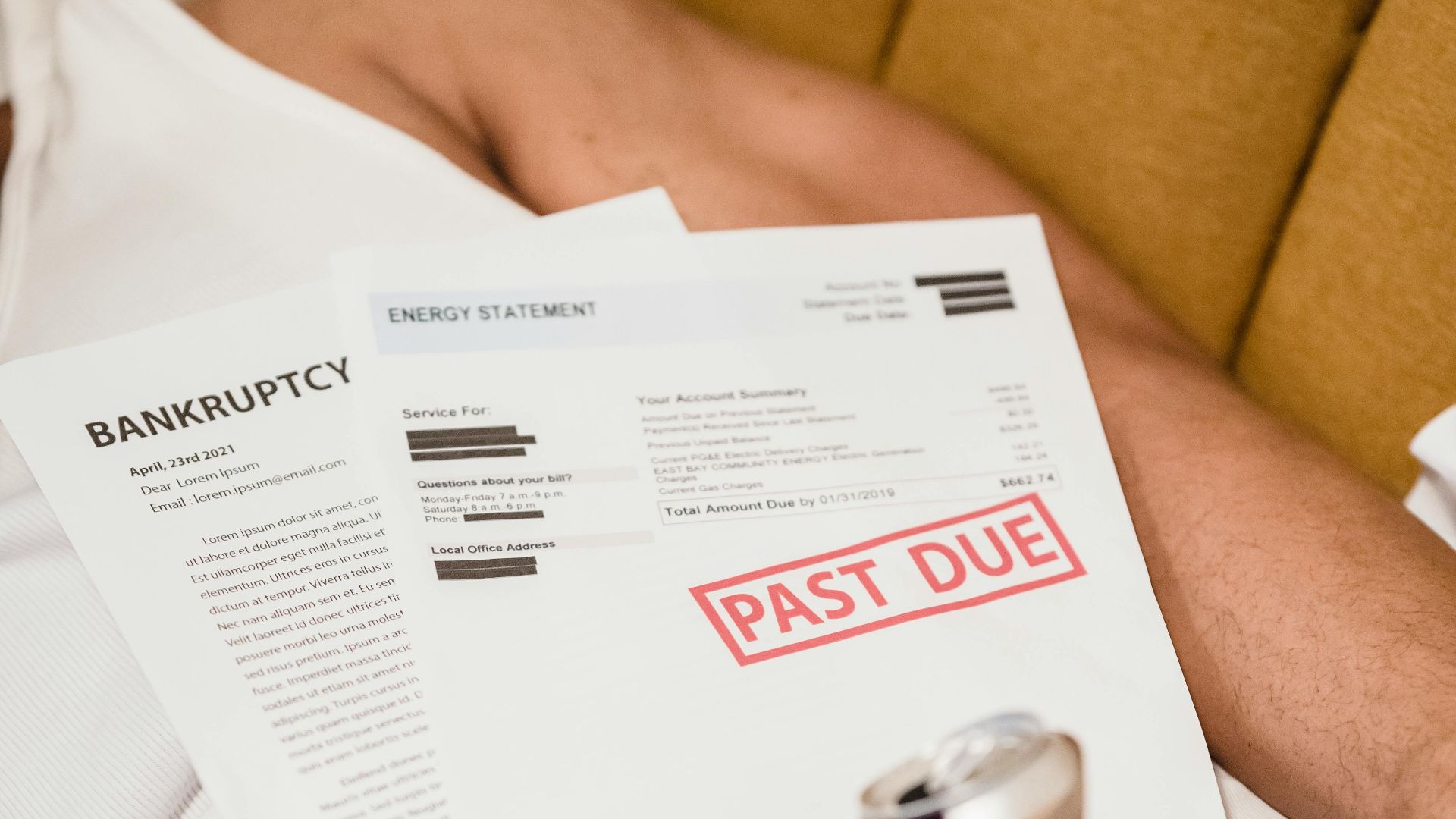Exploring Your Bankruptcy Options
When people start contemplating bankruptcy as a way to escape from debts that have become overwhelming, they often find the options confusing. Chapter 7 and Chapter 13 are the two most common forms. Both offer relief, but they work very differently from each other. Knowing the distinctions between the two will allow you to make an informed, life-changing financial decision.
Chapter 7 Bankruptcy: Key points
In Chapter 7, a lot of unsecured debts, like credit cards and medical bills, can be discharged completely. This kind of bankruptcy is often called “liquidation bankruptcy.” Despite the name, most people are able to keep their basic possessions through exemption laws. The process is usually quick, often taking only a few months.
The Way Chapter 7 Liquidation Works
Chapter 7 requires a trustee to review the debtor’s assets. Any non-exempt property can be sold to repay creditors. But your exemptions protect essentials like a primary vehicle, household goods, or certain amounts of home equity. Once the process is done, most unsecured debts are wiped clean, giving you a fresh start.
Who Can Qualify For Chapter 7?
Eligibility for Chapter 7 is based on passing a means test. This test compares an individual’s income to the state median income. If the individual’s income is below the threshold, Chapter 7 is generally an option. Higher-income individuals often fail this means test and will instead be directed toward Chapter 13 bankruptcy proceedings.
Drawbacks Of Chapter 7
Chapter 7 clears debts quickly, but it does come with some drawbacks. It stays on your credit report for ten years, which makes future borrowing a lot harder. Certain kinds of debts, like student loans, child support, and most taxes, can’t be discharged. Also, valuable property above your exemption limits can be sold off to settle with creditors.
Introducing Chapter 13 Bankruptcy
Chapter 13 is often called “reorganization bankruptcy.” Instead of erasing your debts outright, you enter a repayment plan that lasts from three to five years. This option lets debtors catch up on mortgage arrears, keeps property safe, and repays creditors in part under court oversight.
The Way Chapter 13 Repayment Works
In Chapter 13, monthly payments are made to a trustee, who then disburses the funds to creditors. Payment amounts are based on disposable income and your total debt owed. At the end of the repayment period, remaining eligible unsecured debt is discharged (cancelled). The structured approach of Chapter 13 also puts a halt to foreclosure proceedings.
Who Qualifies For Chapter 13
To qualify for Chapter 13, individuals have to demonstrate regular income sufficient to enable repayment. There are also debt limits, although these are adjusted periodically. Unlike Chapter 7, eligibility isn’t based on a means test but instead on your ability to propose a feasible repayment plan that is subject to court approval.
 Photo By: Kaboompics.com, Pexels
Photo By: Kaboompics.com, Pexels
The Advantage Of Chapter 13
Chapter 13 gives you advantages that Chapter 7 doesn’t. Homeowners can stop foreclosure and reschedule their missed mortgage payments. Certain types of secured debts, like car loans, can sometimes be reduced through “cramdowns.” Additionally, Chapter 13 only stays on your credit report for seven years, compared to ten for Chapter 7.
Drawbacks Of Chapter 13
Chapter 13 isn’t without its own challenges. Debtors have to live under a strict budget for years. Missing payments can derail the plan. The process is long and drawn out, and still requires that you repay some debt. The discipline needed makes it a difficult course for people to navigate to its finish line.
Side By Side Comparison
The differences between Chapter 7 and Chapter 13 are stark. Chapter 7 gets rid of debt quickly but you also run the risk of losing assets. Chapter 13 protects assets but involves years of repayment. The right choice depends on your income level, the type of debt you owe, and whether holding on to property outweighs your need for fast relief.
Impact On Credit Scores
Both types of bankruptcy severely impact credit scores at first. Chapter 7 stays on the record for ten years, while Chapter 13 will remain for seven. Despite the setback, a lot of people start rebuilding their credit unexpectedly quickly by using secured credit cards and by being responsible with their borrowing habits.
Emotional Impact
Bankruptcy is a financial matter that takes a higher emotional toll than many others. Many debtors report feeling relief when collection calls stop, but they also admit to feeling a great deal of shame for needing to resort to bankruptcy. With time, most accept that it’s a legal tool designed for financial reset. Coming to grips with this fact helps alleviate guilt and encourages healthier financial decision-making in the future.
Protecting Property In Bankruptcy
Exemptions take on a central role in protecting property. Chapter 7 exemptions protect your basics like clothing, furniture, and limited home equity. Chapter 13 goes further by allowing debtors to keep property while you repay through the plan. For those who ultimately end up choosing Chapter 13, asset protection becomes the pivotal factor in their decision.
Bankruptcy And Student Loans
One serious limitation is that bankruptcy rarely gets rid of student loans. Only those who can prove “undue hardship” through a difficult legal process may succeed. For most people, these loans survive bankruptcy. So it’s clear that while bankruptcy relieves many debts, it doesn’t settle every financial obligation.
Bankruptcy And Tax Debts
Not all of your tax debts are eliminated in bankruptcy. Certain kinds of older income tax debts could qualify for discharge, but payroll taxes and fraud-related obligations do not. This difference shows the importance of knowing which debts are eligible before filing for Chapter 7 or Chapter 13.
Costs And Fees
Bankruptcy comes with costs. Filing fees, attorney fees, and the required credit counseling sessions all add up. Chapter 7 tends to cost less overall if only because the process is shorter. While Chapter 13 involves higher legal fees, these are often included in the repayment plan and can be spread out over time.
The Importance Of Credit Counseling
Before you file, you must complete compulsory credit counseling. While this can seem like a formality, counseling does at least ensure that you review your finances carefully and explore other alternatives before filing. This is a requirement for both Chapter 7 and Chapter 13 and it’s in place to confirm that bankruptcy is truly your best solution.
Alternatives To Bankruptcy
Bankruptcy isn’t the only option. Alternatives include negotiating directly with creditors, entering into a debt management plan, or pursuing debt settlement. These options generally result in less damage to credit scores but also require that creditors get on board with it. A serious look at these kinds of alternatives can help individuals avoid bankruptcy altogether.
It Depends On Your Situation
In the end, the decision between Chapter 7 and Chapter 13 is a matter of individual circumstances. Those looking for quick relief may look toward Chapter 7, while those who want to protect assets may choose Chapter 13. Both give you the opportunity for a financial reset, but the journey is different.
You May Also Like:
My accountant is filing for personal bankruptcy. Now what?!


























